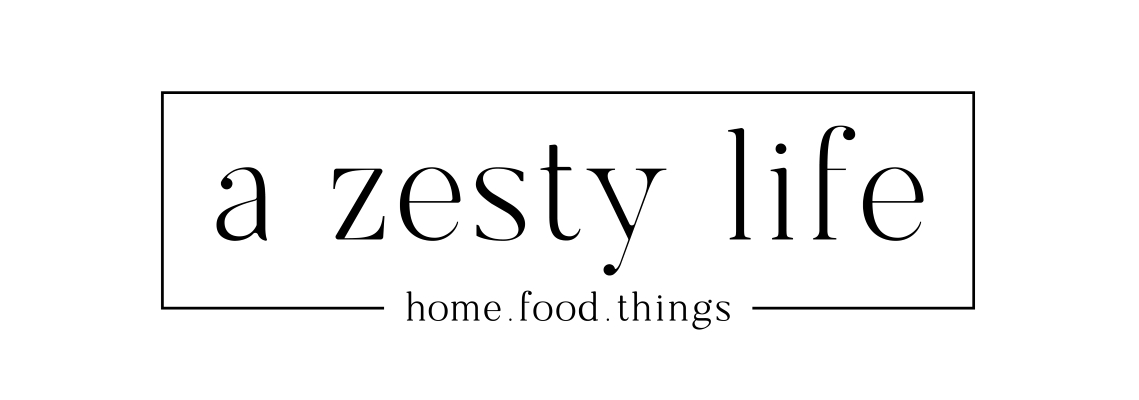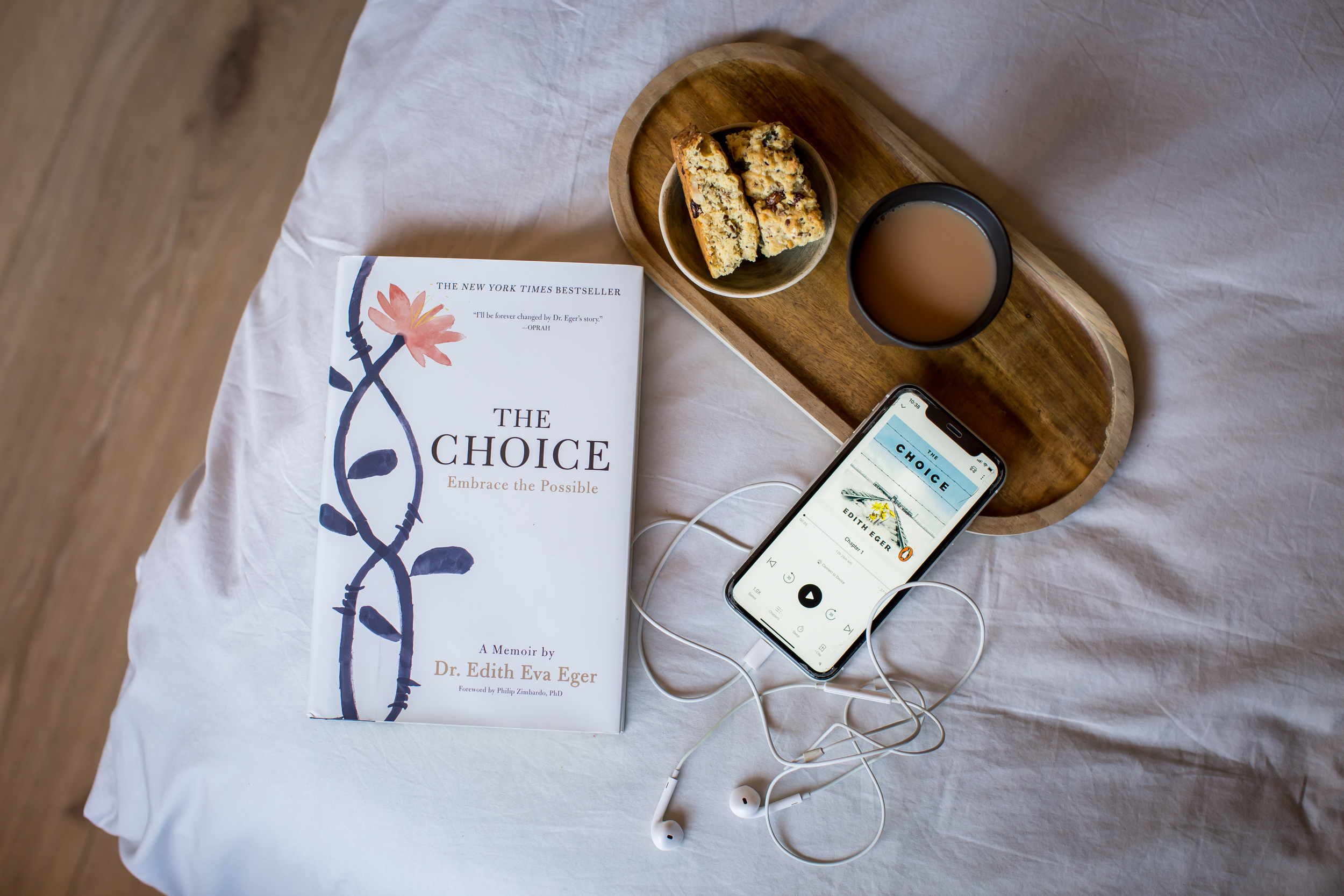
Early on in the Covid lockdown, my dear friend Christa recommended a book to me: The Choice by Dr Edith Eger. She mentioned that it was life-changing. I felt like I already had too much going on & that I did not have the capacity to read a book about the holocaust. But I am so grateful that I did give it a chance.
I am honestly “book shook’ – a term that basically means that you are deeply moved & forever changed by a book. The Choice is that book for me. My perspective is indeed forever changed.
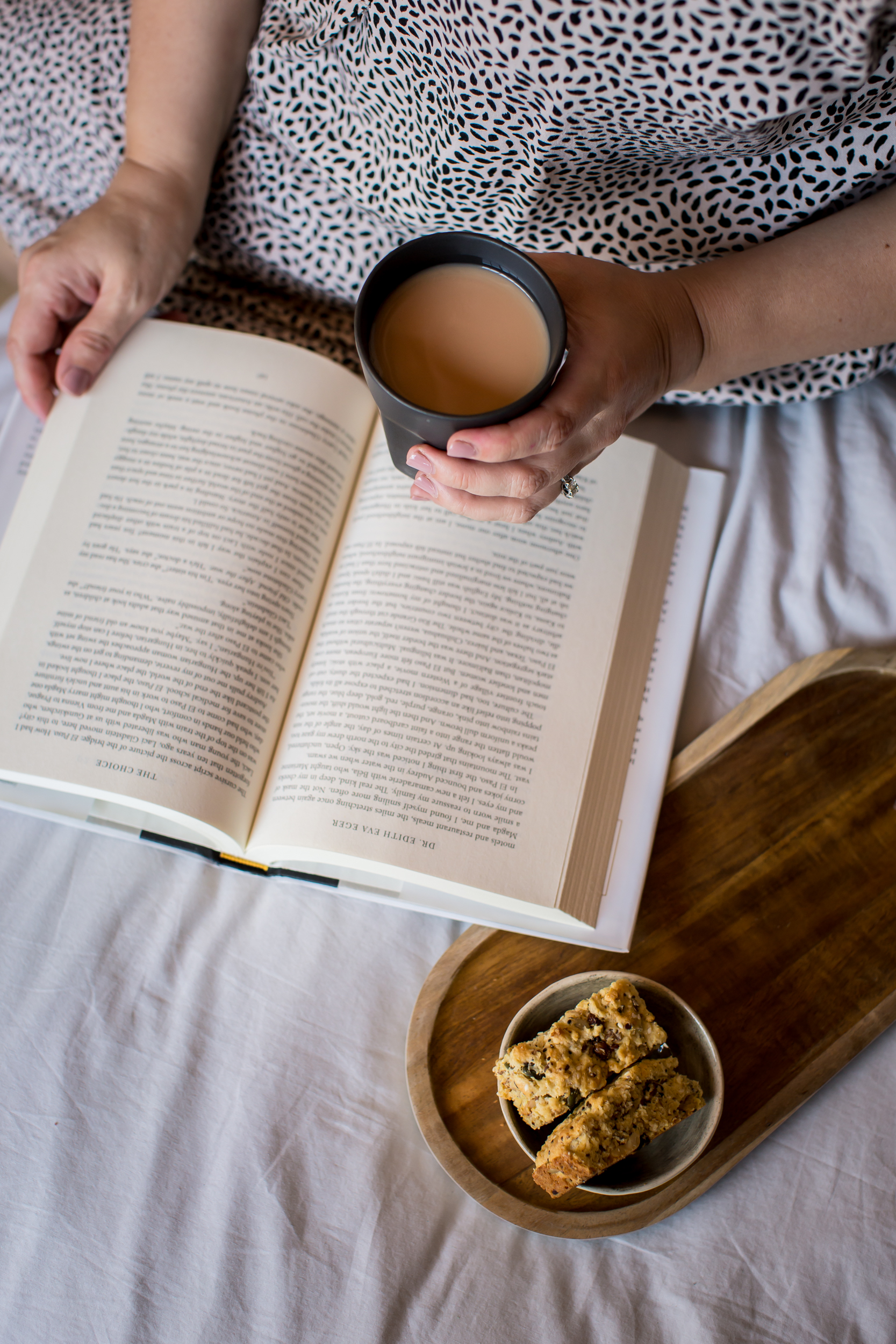
The book is partly a memoir but it is also a sort of manual on how to survive & overcome life’s hardships, abuse, trauma & pain. As a Hungarian Jew, Dr Edith Eger was only 16 years old when she was sent to Auschwitz with her family. Her parents & grandparents were gassed immediately on arrival. Despite starvation, torture & the most unthinkable horrors, she miraculously survived. Later she moved to America & after many years of adversity, she became a psychologist. Today, at the age of 93, she is a world-renowned psychologist who has changed the lives of thousands of people worldwide.
I can’t remember if I’ve ever read a book twice. Until now. I actually listened to this book (on Audible) twice & then bought the hardback copy too.
I’ve asked my friend Christa to help me share some of the lessons that we learned from this incredible book. Here they are:
You always have a choice
We always have the freedom & the choice to choose how we are going to respond in every, single circumstance.
You might feel that none of your current choices are particularly important or life changing or glamorous, but it remains important to remember that you always have a choice. Even if choosing only means that you select the thoughts that you dwell on or not. “Remember that not deciding, is also choosing,” says Dr Eger. By scouting & looking for (any!) options, you will increase your opportunities to choose from & jump-start your liberation process.
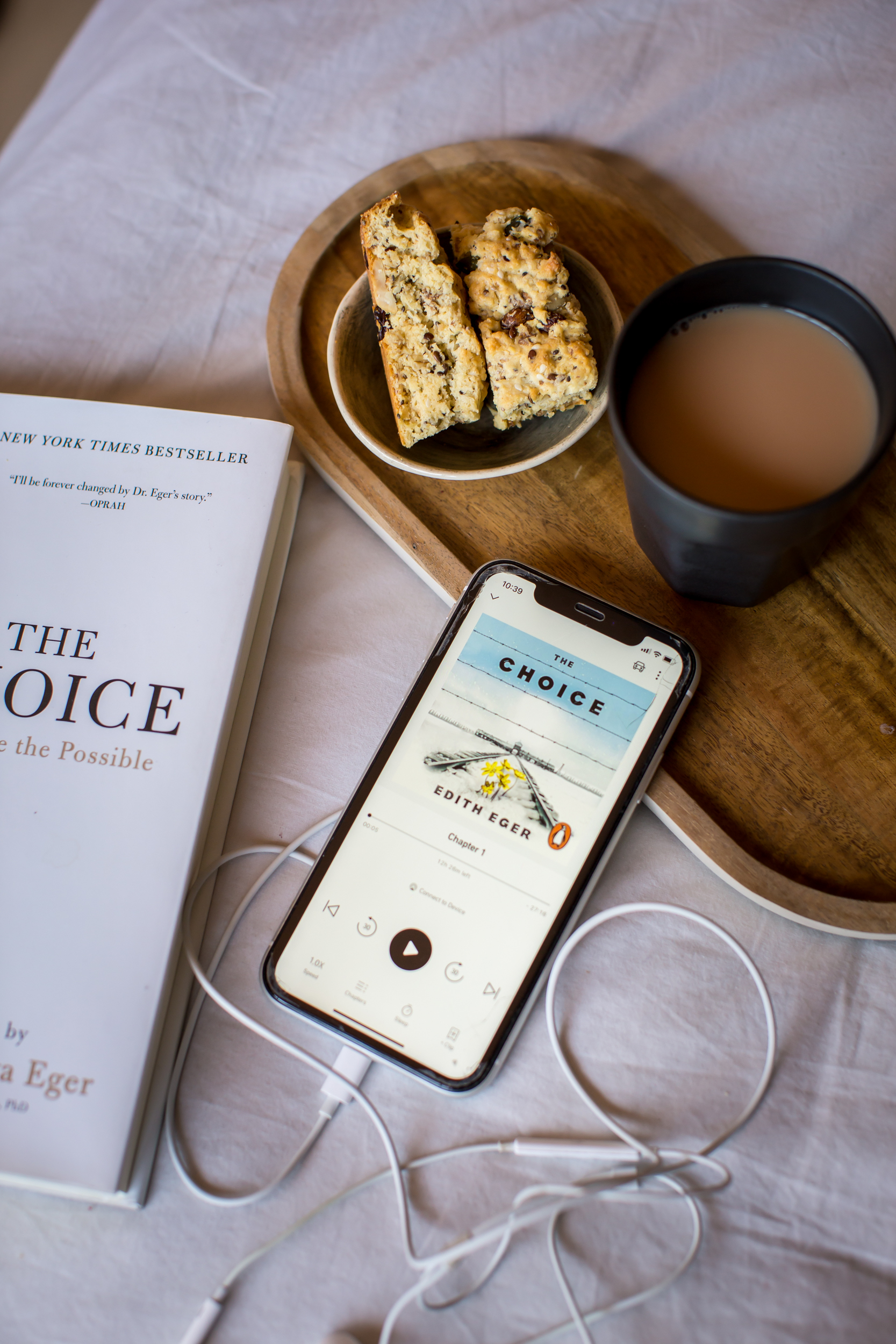
Acknowledging whether what you are doing right now is working for you or not.
“You can’t change what happened. You can’t change what you did or what was done to you. But you can choose how you live now. You can choose to be free,” says Dr Eger.
It is important to play the cards that were dealt… we cannot re-shuffle or cheat out. By skipping turns we also miss opportunities to strengthen our hands or get more experience.
A profound lesson that her mother taught her (on their way to Auschwitz & shortly before her mother was gassed), was: “No one can take away from you, what you put inside your mind”.
There is no hierarchy of suffering
No one person’s suffering is more or less important or deeper. “I don’t want you to hear my story & say, ‘My own suffering is less significant’. I want you to hear my story & say, “If she can do it, then so can I!” says Dr Eger.
Comparative suffering is saying: “How can I complain when others have it so much worse than me?” The truth is that if you do not acknowledge your own sufferings, you will have less empathy with those around you who are having a really tough time. Brené Brown also has some amazing thoughts on comparative suffering.
The golden rule of “do onto others as you would do to yourself “ is more true today than ever before. Look after yourself, fill your cup, put your oxygen mask on first so that then you can assist the vulnerable. The buzzword for this at the moment is selfcare… If you cannot look after yourself, you will struggle to take good care of those around you.
‘Arbeit macht frei’ (Work will set you free)
These are the words at the entrance of Auschwitz. Although these words were not true for Auschwitz – meaning that no matter how hard prisoners worked in Auschwitz, they could not be freed – it is true for your own life.
If you work hard at overcoming your hardships, working on your mindset & dealing with your own issues & demons, then the ‘work that you have done’ will indeed make you free, explains Dr Eger.
You do not overcome trauma or issues by not facing it – the moment that you start acting & dealing with something, it starts to get better. Actively feel the feeling & work through it, says Dr Eger. Letting feelings, trauma & issues ooze & fester is not effective for healing.
“Time doesn’t heal. It’s what you do with the time,” says Dr Eger. “Healing is possible when we choose to take responsibility. When we choose to take risks. And finally when we choose to release the wound, to let go of the past or the grief.”
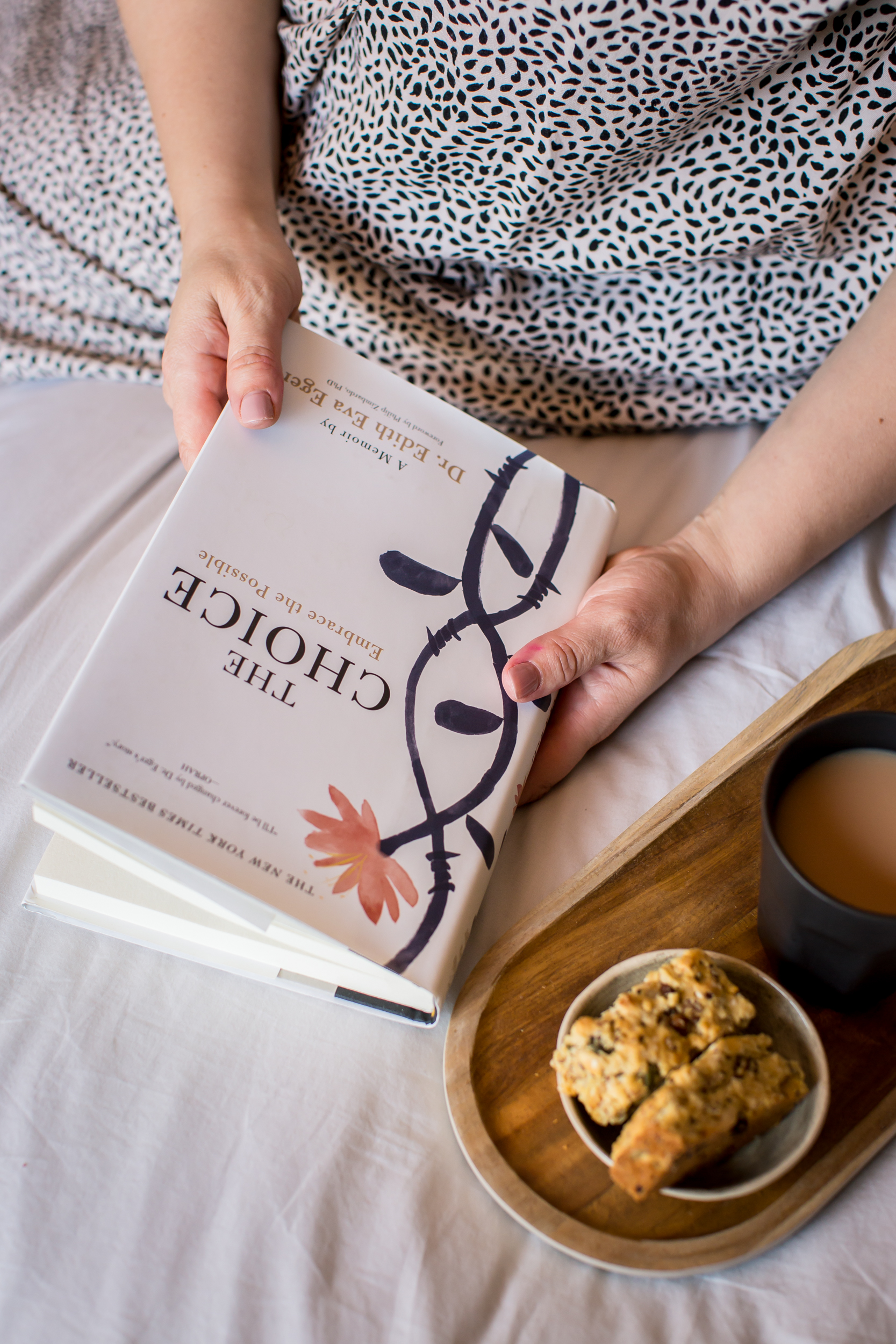
If we do not confront our suffering, our very own minds can become our prison. Confronting our past, working through our suffering & learning to forgive are the things that will set us free.
“Our painful experiences aren’t a liability—they’re a gift.” says Dr Eger. “They give us perspective & meaning, an opportunity to find our unique purpose & our strength.”
You are never too old
Dr Eger was already 50 by the time she received her doctorate in psychology. When she told her mentor ‘I will be 50 when I get my doctorate’, he responded by saying: ‘You will be 50 anyway’.
Whenever you feel that you are too old to pursue something, remind yourself that if Dr Eger did not pursue this career path so late, she would not have had the opportunity to impact so many people in the 40+ years after her 50th birthday.
If I look at the interviews with Dr. Eger now, she still has a beautiful youthful look, even in her nineties. She still shows curiosity about life, dances & sees patients.
Learn from mistakes & faults – your own & those around you too
All of us our childhood memories are a bit of a puzzle. We do not always remember all the pieces, explains Dr Eger. She learned a lot from her mother – good & bad. But only as an adult, did Dr Eger understand the mistakes & issues of her parents. There is a lot of insights to gain from the faults & issues of others.
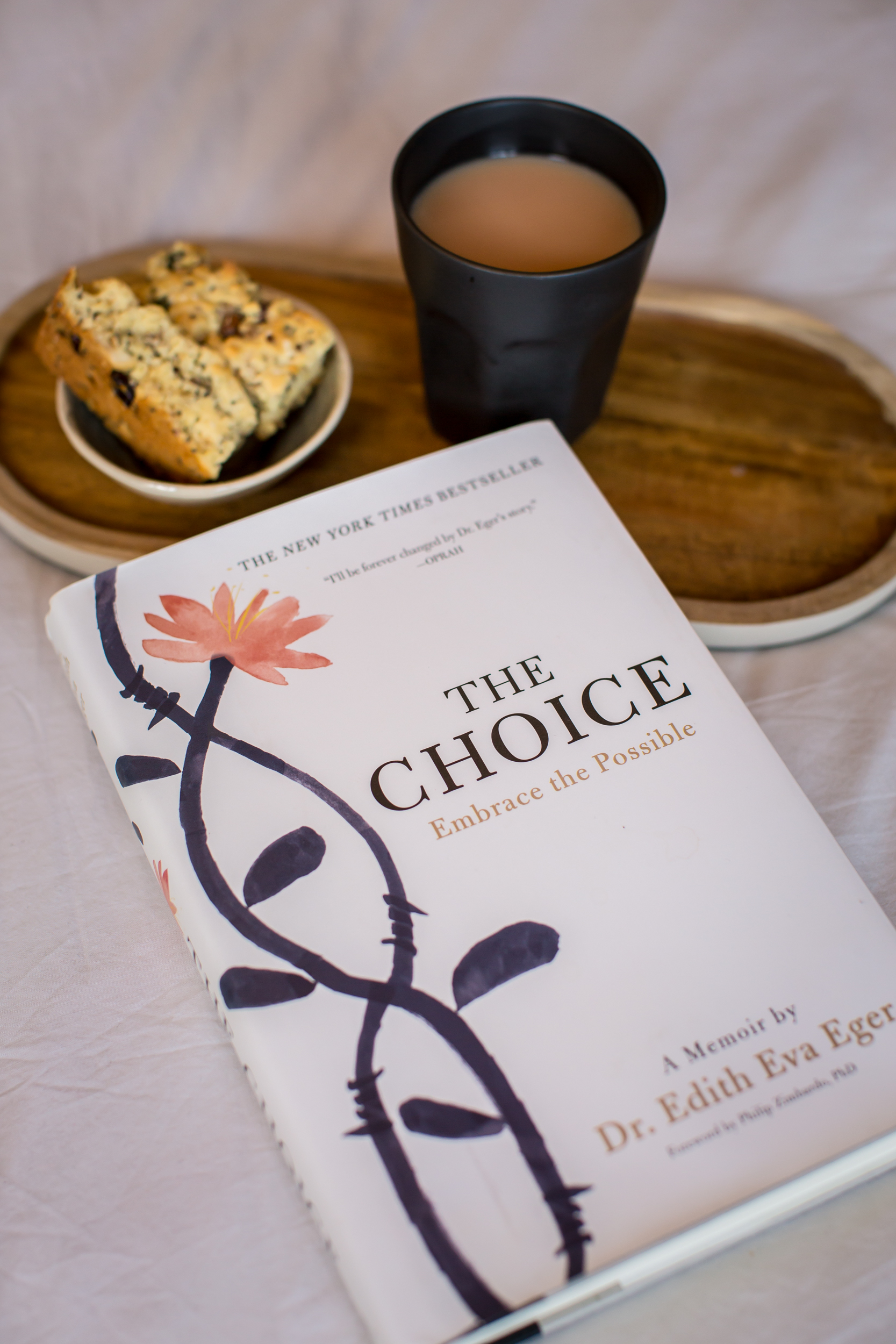
The Choice is beautifully written. Only the first section is a war memoir that plants a few important ideas in the back of your head. Thereafter she explains how she got emotionally liberated & how these seeds are applicable in our everyday lives. She also includes many examples from her practice that touch on every human issue…She explains what she has learnt & generously gives the reader an opportunity to learn from her vast experience & wisdom.
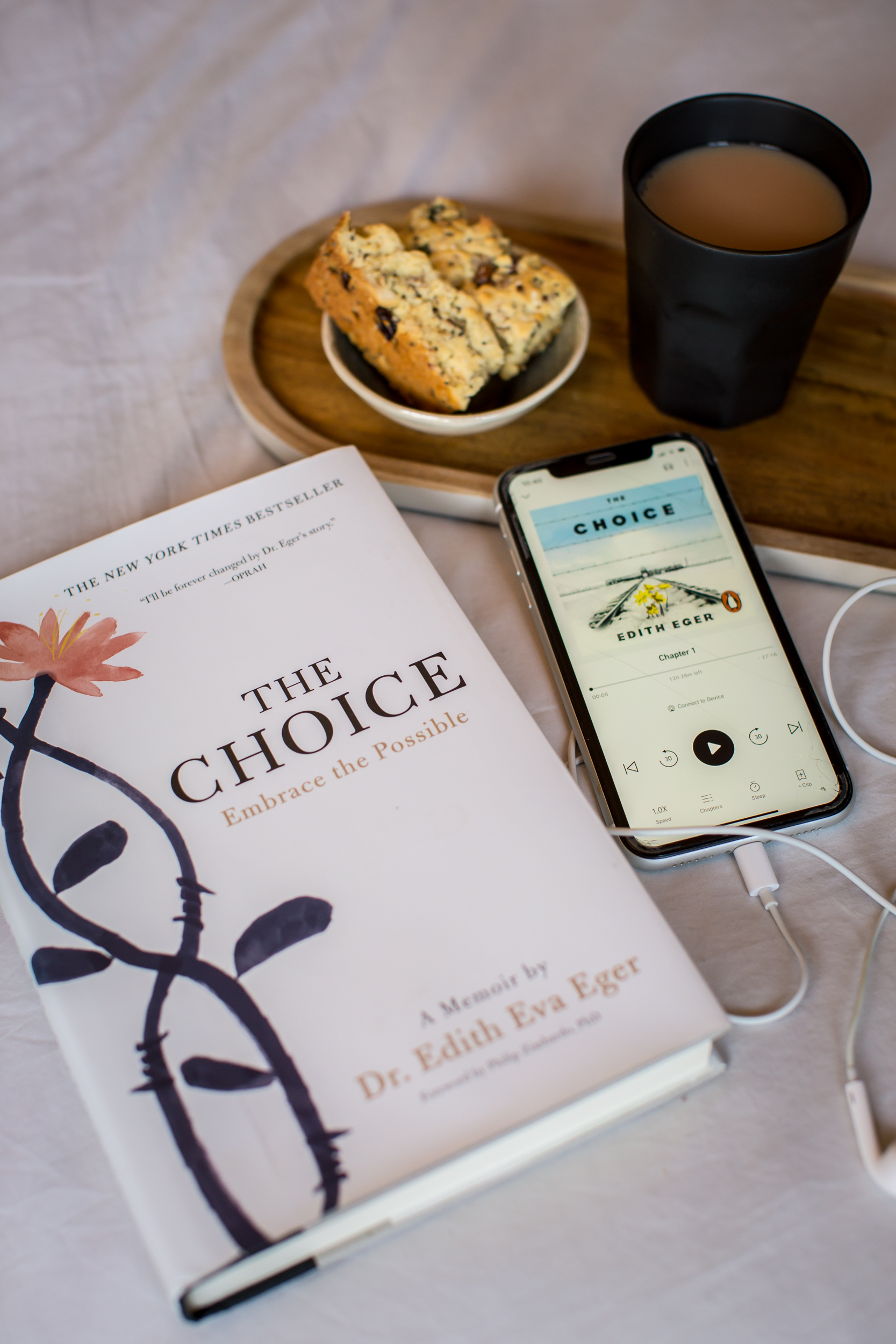
Do yourself a huge favour & read this book. Or better yet, listen to it on Audible – the narration is remarkable & makes it so much more memorable.
And let me know if you read it – I would love to know what it meant to you.
Yolandi (& Christa) ♥
Images: Mariaan from Picture me&u
Ps. Other beautiful narratives to read: ‘All the light we cannot see’ by Anthony Doerr – from a French perspective & ‘Beneath a scarlet sky’ by Mark T Sullivan written about Pino Lella (from an Italian perspective)
Pss.This interview is a must watch.
